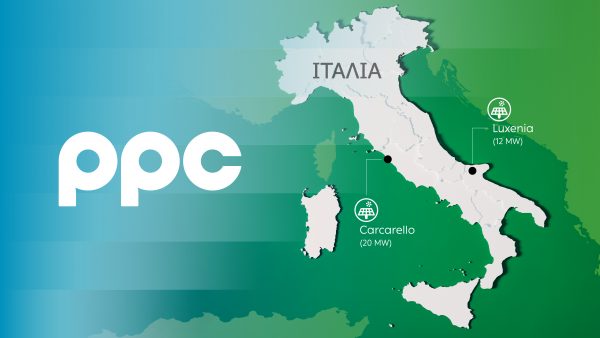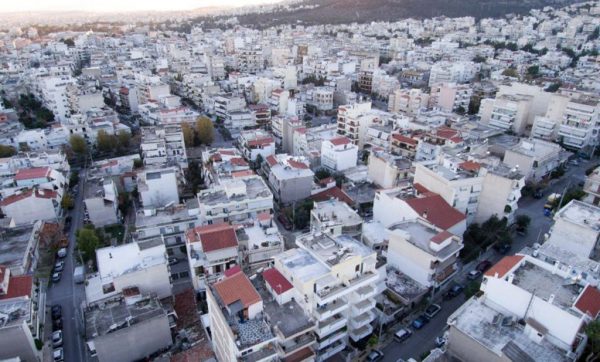
The main scenario now forecast by the Bank of Greece (BoG), as a result of the ongoing war in Ukraine, is a reduction of Greek GDP by one percent, along with a hike in inflation, also by one percent, according to BoG Gov. Yannis Stournaras, who spoke on Tuesday during the second day of the inaugural OT Forum.
He said this forecast is valid under the condition that the conflict ends quickly.
“Today markets are more optimistic, expecting that something positive comes from peace negotiations,” he said, adding however, that three scenarios have been developed by the central bank for the course of the Greek economy.
At the same time, Stournaras, a former finance minister, said that even in the worst-case – i.e. the war dragging on until the summer – a recession is not forecast for Greece.
Under such a case GDP reduction will reach 2 percent or more, he said.
Asked about the issue of “bad loans” burdening Greek systemic banks’ results, Stournaras said the true picture at the moment for NPLs and NPEs, is not clear, given that state subsidies are still being extended to businesses and households due to the pandemic.
In changing gears, he left open the possibility of the European Central Bank (ECB) proceeding with a small hike in its primary interest rate, towards the end of the year.
Stournaras said the ECB must be very careful in its effort to deal with a surge in inflation, as “inflation from the supply side cannot be reined in with monetary policy measures.” Along these lines, he did not preclude the prospect of a hike in interest rates by the end of the year.
Returning to the domestic front, the central banker said systemic banks in Greece must utilize coming EU Recovery Funds to boost their lending capacity, adding that after the transfer of non-performing loan portfolios to servicers, Greek banks retain performing loans worth 100 to 102 billion euros. “It’s vital for them to increase their lending.”
He forecast that out of some 800,000 businesses in Greece, roughly 200,000 are in a position to borrow.
Asked if Greece’s debt servicing is at risk, Stournaras said public debt has been fully re-financed with very low interest rates, with the average yield now at 1.4 to 1.5 percent, lower than even the one enjoyed by Italy or Portugal.
“We’ve learned our lesson, that we cannot have irresponsible fiscal policies,” he stressed.
Finally, Stournaras said the achievement of an investment grade rating for Greece, as soon as possible, is a “national goal”, pointing to next year, in fact. “An investment grade means independence.”
Latest News

Capital Link Forum Highlights Greece’s Economic Resurgence; Honors BoG Gov Stournaras
Capital Link Hellenic Leadership Award recipient, Bank of Greece Gov. Yannis Stournaras, an ex-FinMin, was lauded for his pivotal role during Greece’s economic recovery

Tourist Spending in Greece Up by 14%, Visa Card Analysis Shows
Greece’s capital Athens emerged as the most popular destination, recording a 17% increase in transactions with Visa cards, surpassing even the cosmopolitan island of Mykonos.

Inflation in Greece Unchanged at 2.4% in Nov. 2024
The general consumer price index (CPI) posted a 0.4% decrease in November compared to the previous month

2024 Christmas Holidays: Extended Shop Hours Schedule
The 2024 Christmas Holidays extended shop hours schedule commences on Thursday, December 12 and runs until the end of the year.

ELSTAT: Seasonally Adjusted Unemployment Down in October
The number of employed individuals reached 4,284,694, an increase of 67,723 compared to October 2023 (+1.6%) and 22,002 compared to September 2024 (+0.5%).

Greek PM’s Chief Economic Adviser Resigns
In the post on his Facebook page, Patelis did not disclose the reasons that led him to step down.

“Masdar Invests in the people of Greece and in the vision of TERNA ENERGY”
Four messages from the CEO of Masdar, the Arab renewable energy giant, after its acquisition of 70% of TERNA ENERGY

Lloyd’s List Greek Shipping Awards 2024: Honors for leading companies and personalities in the Greek shipping sector
20 awards presented at the 21st annual Lloyd's List Greek Shipping Awards

Syria’s Bashar al-Assad, His family Granted Asylum by Russia
Reuters also reported that a deal has been struck to ensure the safety of Russian military bases in the war-ravaged country

Greece to Introduce Artificial Intelligence into Its Education System
Currently, Greece is taking its first steps to bring AI into classrooms through the AI4edu program, which is being co-funded by the European Union














![Χειμερινή εξοχική κατοικία: Οι Ελληνες γυρνούν την πλάτη παρά την πτώση των τιμών [γραφήματα]](https://www.ot.gr/wp-content/uploads/2024/12/Capture-19-90x90.jpg)

























 Αριθμός Πιστοποίησης Μ.Η.Τ.232433
Αριθμός Πιστοποίησης Μ.Η.Τ.232433